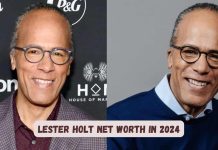
On July 2, 1994, the defender was murdered by a hit man. andres escobar, after he was unlucky enough to score a goal against his national team, Colombia, against the United States in the World Cup. Three years later, the young German Jurgen Griesbeck, who was a scholar who was studying in that city, felt that something had to be done to radically change that situation. So, he repaid his scholarship and set out to help build fields all over the city and busily seek peace. He ran into hundreds of obstacles and suspicious eyes, but he proposed that the gangs play soccer with each other, without referees, that fouls be resolved by consensus, that the teams be mixed, and that the first goal of each game should be scored by a woman. . It worked, to the point that there were a thousand players at its peak and the success was so great that even Germany imported the social integration program shortly before the 2006 World Cup in which it was local.
Griesbeck ended up winning the prestigious award in 2006 “Laureus Sport for Good”, and what was first “Streetfootball World” as an organization to change football from solidarity, later became “Common Goal”, when Juan Mata, the former footballer of the Spanish team, world champion in 2010 and Manchester United, in 2017, joined.
“Common Goal is not a foundation in the sense of a charity, but a movement,” explains Ben Miller, one of the partners, who came from the sports marketing area. It is an organization that is based on committing 1% of the income of footballers, brands, clubs, football entities and the media, to help certain groups. A collective fund that invests in transforming football on the planet”.

“Our philosophy -insists Miller- is that everyone knows what football is and I’m not saying it’s fine the way it is, but part of this role is ethical leadership, more women in positions of power. If someone is willing to invest in what they earn, who are we to say no? and she tells that it all started when I heard her say Juan Mata, whom he knew through other Spaniards, that what the footballers charged was outrageous. We had meetings, we reached an agreement, and a ‘Common Goal’ was generated. Two days after his birth he contacted us Mats Hummels, the world champion in Brazil 2014, and after him, Megan Rapinoe, and then, Giorgio Chiellini. More than once we thought they were kidding us,” he admits to infobae. “Later, we already spoke with Marcus Rashford’s brother, with people from the Spanish Federation, from La Liga, many more people joined the initiative. Our motto is ‘Uniting the soccer community forever.’”
“It is a collaborative force to face challenges. It’s a collective movement with the idea of working together, like on the pitch”, explains Miller, who recalls that “there were a number of non-connected NGOs and then a network of 33 organizations in 17 countries was put together. Surely we need to mature as a collective action with the transformation of the industry and the big question we asked ourselves is who controls: we work on gender equality, peace, in the football business itself”.
However, the road is not easy and many times it is difficult to convince footballers about these actions. “As a good example is Hyundai, which is a partner in our venture and has a commitment to climate change by 2040, so they are on the journey, and players who do things well and we just talk to them about how to collaborate, we meet others, who are top and who usually have a lot of people around them and these people don’t usually understand collective action and tell you ‘I already have my foundation, thank you’, but what generates the one percent discount the income of each one is to achieve it in a coherent way. The effectiveness of elite foundations is usually not very good. Which one is going to be more effective as a social impact, that of your foundation or one that has been in operation for years?” Miller wonders.
In this sense of the difficulties for the footballers’ environment to understand the need to channel their commitment to solidarity, a colleague of Griesbeck’s, the CEO of “Common Goal”, Thomas Preiss, had organized a meeting with a player’s agent in a London cafe, but it ended abruptly when the one per cent figure appeared. “They find that the narrative is rigged in such a way that you can rarely talk to the player.”

It does not seem difficult to deduce that “Common Goal” had more luck with women’s football, getting many of the stars to sign up. “It is much faster, easier and more direct with the athletes”, admits Griesbeck, who in any case highlights the inner struggle of men to escape their “bubble”. “I think the player’s self-awareness is different,” she continued. Women, in our experience, never tune out. They don’t have the privilege of going offline.”
“Common Goal”, which can be accessed with a simple form, has already managed to add 240 footballers of all levels and genders (among them, the German Serge Gnabry, the Dutch Vivianne Medema, the Danish Pernille Harder and the Spanish Adama Traoré, the French André Onana, the Danish Kasper Schmeichel, the Ecuadorian Pervis Estupiñán, and the Japanese Shinji Kagawa), which come together to support eight areas of impact that drive progress towards global goals: fight against racism, gender equality, peacebuilding, climate change, LGTBQ+ inclusion, youth employability, health and education.
One of the most emotional moments was when another of the players who signed up for “Common Goal”, the only Argentinian in the organization, Paulo Dybala -who donates part of his salary, among other institutions, to “Granja Anda”, which follows young people with different abilities-, appeared in a video call to a compatriot with Down Syndrome and gave her a Roma shirt, his current team .
Elvira González-Vallés Martínez, Also from “Common Goal” and based in Germany, she tells infobae the “Somos Equidad” program implemented in Latin America since 2021 and which continues now with the support of experts such as the Fundación Selección Colombia, “Women Win” and “Soccer Without Borders” as well as the participation of fourteen organizations from the region, in Ecuador , Mexico, Colombia, Costa Rica, Uruguay, Chile, Peru and Argentina.
The program’s main strategic lines are to promote gender equality, such as promoting female leadership in community soccer programs, increase the number of coaches on the courts, ensuring that all girls have female role models, and increasing the participation of girls in football, breaking down the barriers that prevent them from accessing (opportunities, stereotypes, etc).
In the last World Cup, Adidas presented the “Al Hilm” ball, before the final, with the message: “This is a two-time game”, because the men’s game ended but in 2023 the women’s will be played in New Zealand and Australia, Knowing that only 14.1 percent of Generation Z soccer fans who supported the men’s World Cup support the women’s. With the idea of supporting gender equality, then, it was decided that 1% of the sale of all the official balls of 2022, Al Hilm and Al Rihla, would contribute to the “Global Goal 5 Accelerator” program. And also 1% of the sale of the official ball of the 2023 World Cup, “Oceaunz” -which will have the new “Connected Ball” technology-, will be reinvested in women’s football.
Months before, and regarding the war between Russia and Ukraine, “Common Goal” had also launched the “Team Up For Ukraine” campaign, to provide immediate and long-term support to those affected by the conflict.

As for other of its campaigns, the “Play Proud”, to help for a more inclusive soccer, it was possible to bring together eight clubs from Canada, the United States and Mexico with groups of fans from the three countries with more than one hundred hours of programming inclusive LGTBQ+ to try to that the next World Cup be “the most inclusive of all”. They also managed to fill, in the summer, and for the same campaign, the Rose Bowl stadium in Los Angeles with the Real Madrid-Juventus match.
Another example of contribution through football is that of the Spanish player from RB Leipzig and his country’s national team, Dani Olmo, who after having made the lower divisions at La Masía del Barcelona, decided to continue his career at Dinamo Zagreb. He played there for six years and ended up adapting to that reality, to the point that he was nicknamed “Olmic”, with his last name ending as if he were Croatian. Joined “Common Goal” since 2020, one percent of his salary goes to “Cross Cultures”, an organization that works in Croatia and uses soccer to build bridges between communities affected by the war in the Balkans. .
“Common Goal” is based on the belief that soccer, as the world’s most popular sport, “is one of the few cultural forces strong enough to help change society towards a more sustainable and equitable future for all, enough to act as a catalyst for social transformation.
in his book “Radical Football” Griesbeck remembers what Medellín was like when he was studying, a territory in which violence was the common denominator, and how he was able to advance in the peace process thanks to football and the support of his Colombian wife Élida. “She knew the cultural codes of Medellín and she knew the danger she was exposing me to. I didn’t know anything. I was a newbie. She was the brave one, not me.”
“We were dealing with serial killers -says Élida- but I felt more inspired, more connected, because they allowed themselves to get emotional. Deep down, they did not want to live that situation. They wanted peace and they just didn’t know how to get there.”
“He drove a 1954 Ford – Griesbeck resumes in his book – and that made him notorious and of low status, because the gang leaders had flashier cars. The car helped. Being recognizable was part of my life insurance.”
Years later, Griesbeck’s partner in crime fighting, Alejandro Arenas Tobon, He returned to Medellín and was able to observe a street soccer game that was being played with the rules of “Football for Peace.” When consulting them, the young people did not know where they had learned it. Since they could remember, it had always been played that way, it is told in the book “Radical Football”.
“Football -he concludes- is the only thing that can do what humanity needs to do. Religion can’t do it now. No government can do it. The United Nations cannot do it. No music can do it. No cultural phenomenon can do it. There is nothing else, it is football. It is the only unifying force that speaks to more than fifty percent of our population. Football can reach the hearts and minds of people, a critical mass, and it can change the way we are as human beings. But he needs to wake up and he must.”
Keep reading:




